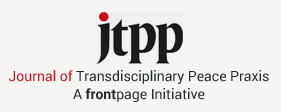China’s Economic Reform: Ideological Legitimacy and Deng Xiaoping Theory

- Rediscovering Swami Vivekananda
- China’s Economic Reform: Ideological Legitimacy and Deng Xiaoping Theory
- Politics in Hunger Regime: Essays on the Right to Food in West Bengal
- The Sickle and the Crescent: Communists, Muslim League and India’s Partition
- The Price When Bookkeeping Means Bookcooking
Binding:HardcoverSize: 215x140 mm
Pages: 239Year:
China’s economic transformation, introducing private economy, stock exchange, induction of foreign direct investment (FDI), disinvestment or total closure of state-owned enterprises and, above all, the shift from ‘planned economy’ to ‘socialist market economy’, has been a topic of wide-ranging discussion and apprehension, especially in the context of the country’s adherence to the philosophy of Marxism–Leninism and Mao Zedong Thought.
China’s Economic Reform: Ideological Legitimacy and Deng Xiaoping Theory examines the discussions and debates among Chinese theoreticians and economists regarding the economic reform measures adopted by the leaders of the Communist Party of China (CPC) in the late 1970s. Based on an extensive survey of Chinese material, the study focuses on the internal discourse on the nature and rationale for economic reform, the decision to implement the “open-door” policy; as well as the attempts to legitimise the transition from a planned to a market economy. It also outlines the evolution of Deng Xiaoping Theory and the concerns of Chinese theoreticians and economists about the problems and prospects of the economic reform. More importantly, it endeavours to bring to light the Chinese attempts to explain and legitimise the economic reform in relationship to the ideals of Marxism and Mao Zedong Thought.
Mao Zedong propagated building socialism with Chinese characteristics to make China a strong socialist country. However, concrete measures to realise the objectives were eventually undertaken by Deng Xiaoping, no less a person than the man once condemned as ‘No 2 Capitalist Roader’. The book reveals how non-dogmatic ‘Seek truth from facts’ principle of ‘Deng Xiaoping Theory’ acted as the driving force to make China the world’s second largest economy in 30 odd years.
Narayan C Sen (Sen Nalan) was in the faculty of Chinese Language at the University of Calcutta, Kolkata, Visva-Bharati, Santiniketan, Jawaharlal Nehru University, New Delhi, and also held the position of Research Professor of Chinese Studies, The Asiatic Society, Kolkata.
Sen had the opportunity of witnessing the economic changes China had underway since he had a long innings in China both as a Research Student at the Department of Chinese Studies, Peking University from 1955 to 1958 and later as an Expert in The Foreign Languages Press, Beijing, from 1982 to 1993. Sen’s important publications include: Mao Zedong, the Man (in Bengali), Rural Economy and Development in China (Beijing, 1990), and Lu Xun: Life and Works (Beijing, 1986), Accounts of India and Kashmir in the Dynastic Histories of the Tang Period (Visva-Bharati, 1968).
Published Price: £ 14.95; INR 595; $ 24.95
Please CLICK HERE to get your copy
Free Shipping






